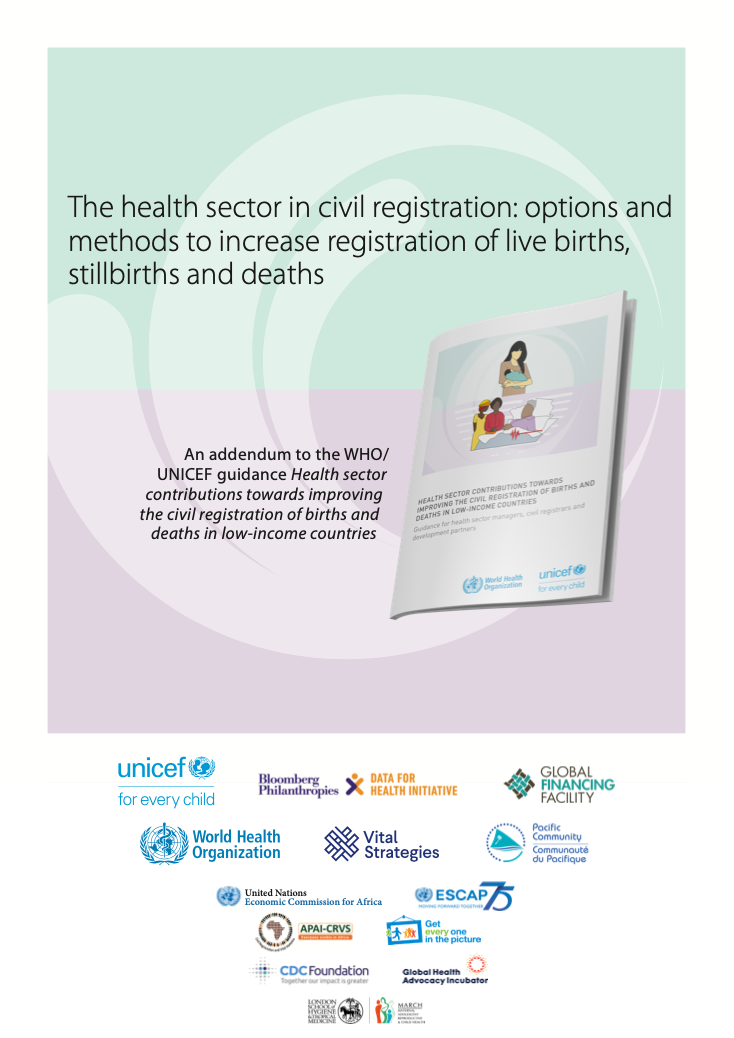The purpose of this guidance is to help civil registration and vital statistics (CRVS) system stakeholders increase rates of vital event registration. Options and guidance are provided to improve the quality and timeliness of civil registration information by leveraging opportunities available in and with the health sector, including infrastructure and well-established data collection practices.
The goal is for stakeholders in the Ministry of Health and the civil registration agency to use this resource together with the WHO-UNICEF guidance to establish a more proactive role for the health sector in the civil registration system, resulting in more efficient and complete registration service delivery. This may involve procedural and process changes, including in legal frameworks.
Recent Abstracts
Information About New Federal Regulations for Opioid Treatment Programs (OTPs)
Centering Country Ownership and Leadership: The Data for Health Initiative’s Approach
Mass Media Campaigns
Data for Health: Advancing Gender Equity
The Index of Tobacco Control Sustainability
Index of Tobacco Control Sustainability (ITCS): India Subnational Tobacco Control
Index of Tobacco Control Sustainability (ITCS): Indonesia Subnational Tobacco Control
Considerations for Planning Childhood Blood Lead Surveillance
Air Quality Monitoring Toolkit: Assessing Second-Hand Smoke in Hospitality Venues
Association between high-threshold practices and buprenorphine treatment termination
